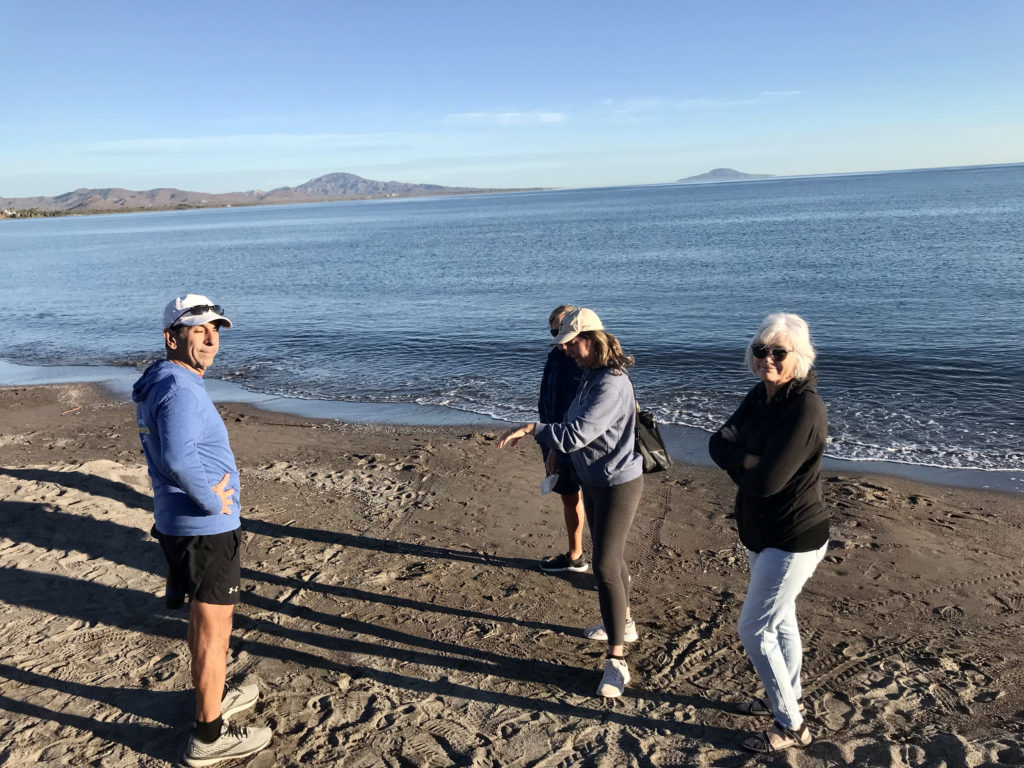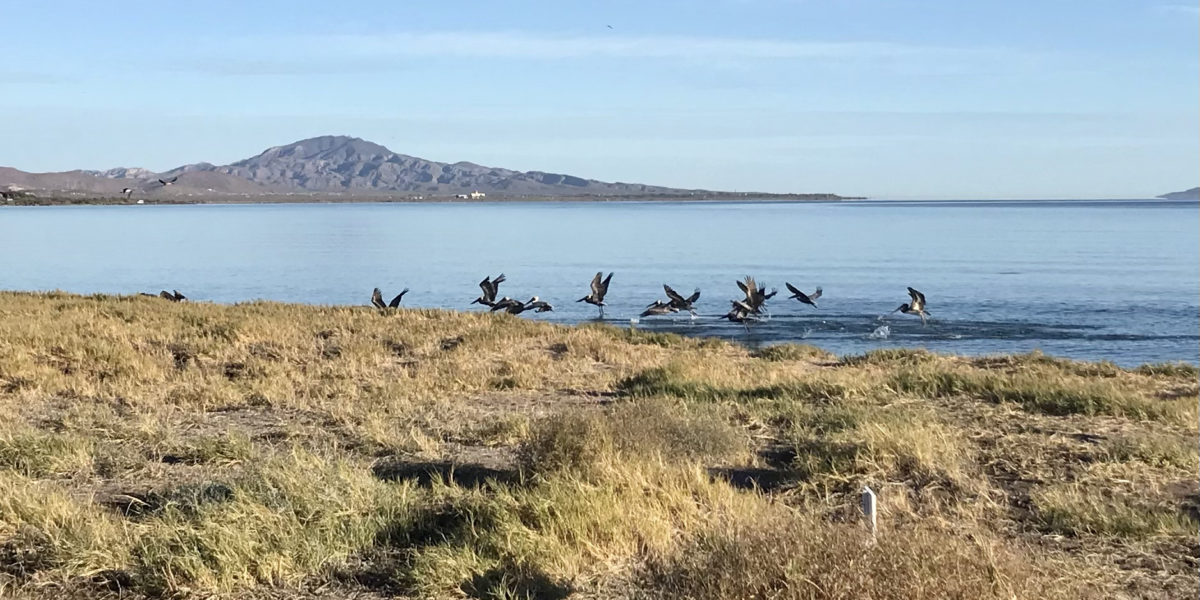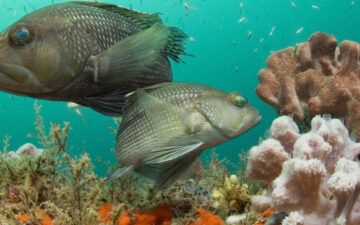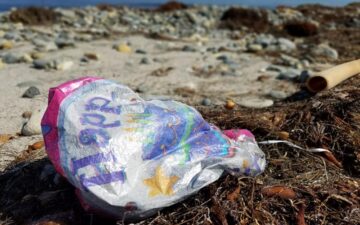I have just returned from my first international trip on behalf of The Ocean Foundation in nearly 2 years. I visited one of my favorite places, a place I’ve been visiting and working in for over three decades: Loreto, BCS, Mexico. Obviously, the pandemic is not over. So we took every precaution to reduce any risk of putting pressure on this small town’s health care systems. Even with these precautions, I have to say that it felt a little too early to blithely go about the world. Especially to a remote place where vaccinations and health statistics are not what I have here at home in Maine.
On the other hand, it was truly wonderful to be there and see what has been accomplished despite the demands of the pandemic and its associated economic shifts. As I stepped off the plane onto the tarmac, I took that first deep breath, inhaling the unique scent of where the desert meets the sea. There is no substitute for the opportunity to meet with our partners in the community, walk the land, and visit the projects. I came away inspired once again by the efforts being made to protect the coast and ocean as well as the people who depend upon them.
Loreto is home to both significant historical sites and to a suite of unique ecosystems, lying as it does where the desert runs from the mountains to the edge of the sea. Adjacent to Loreto in the Gulf of California is the Loreto Bay National (marine) Park. This includes five islands of ecological significance, all of which have been designated a UN World Heritage site. Blue whales, humpbacks, dolphins, sea turtles, plankton, frigate birds, blue footed boobies, brown pelicans, angel fish, parrot fish, sierra, dorado, and rainbow wrasses are just some of the creatures the Park hosts for all or part of each year. The Ocean Foundation has been deeply engaged here since 2004.
Keep Loreto Magical
Our project there is called Keep Loreto Magical (KLM). This is a reference to the town being on the Mexico’s formal list of Pueblos Mágicos. The list is intended to identify special places that might appeal to tourists and other visitors who care about unique aspects of Mexican natural or cultural heritage.

Keep Loreto Magical has about 15 ongoing projects related to coastal and ocean conservation, community organizing, health care, water conservation, air quality, food security, and wildlife rescue. It is largely funded by expatriate home owners from the U.S. and Canada, who have purchased their sustainably designed and built homes and condos in a walkable community south of town called the ‘Villages of Loreto Bay.’ KLM is overseen by an all-volunteer Advisory Committee and is fiscally hosted by TOF. KLM has one contracted staff person, Ceci Fisher, a dedicated nature enthusiast and community organizer who ensures there are always numerous volunteers who show up for a broad array of events: From planting for dune restoration, to filling boxes of produce for the Community Supported Agriculture program, to releasing a rehabilitated blue-footed booby.
In short, KLM activities are succeeding and thriving during the pandemic. There seem to be ever more opportunities to help the community manage waste, health care, and economic activity in ways that support the well-being of the natural resources on which it depends. In fact, we are planning for growth! We have welcomed new Advisory Committee members and reinvigorated fundraising, communications, and networking. We are working toward hiring a second contractor to take some of the work off Ceci’s plate. These are good problems to solve.
New and Continued Opportunities
While I was in Loreto, I was made aware of a new opportunity to help protect the abundant marine life of the region. I had a nice long meeting with Rodolfo Palacios who is the new Director of the Loreto Bay National (marine) Park. The park falls under the jurisdiction of the National Commission for Natural Protected Areas (CONANP), which is part of Mexico’s Secretariate for Environment and Natural Resources (SEMARNAT). CONANP is a key TOF partner, with whom we have an MOU to work together on marine protected areas.
Señor Palacios explained that Loreto National Park is suffering from the budget constraints that have limited CONANP’s work and reduced its ability to staff Mexico’s parks. Thus, one of our next steps in Loreto is to pull together the necessary support for the Loreto Bay National Park to be well-managed. The immediate to-do list includes seeking some office and field equipment as in-kind donations; providing some funding for park rangers and technical experts; and adding on to KLM’s budget for park-supportive communications, community outreach, and ocean literacy.
Loreto is indeed a magical place and its marine park even more so. Please let me know if you would like to join us in ensuring that Loreto Bay National Park is a sanctuary in fact as well as on paper.







